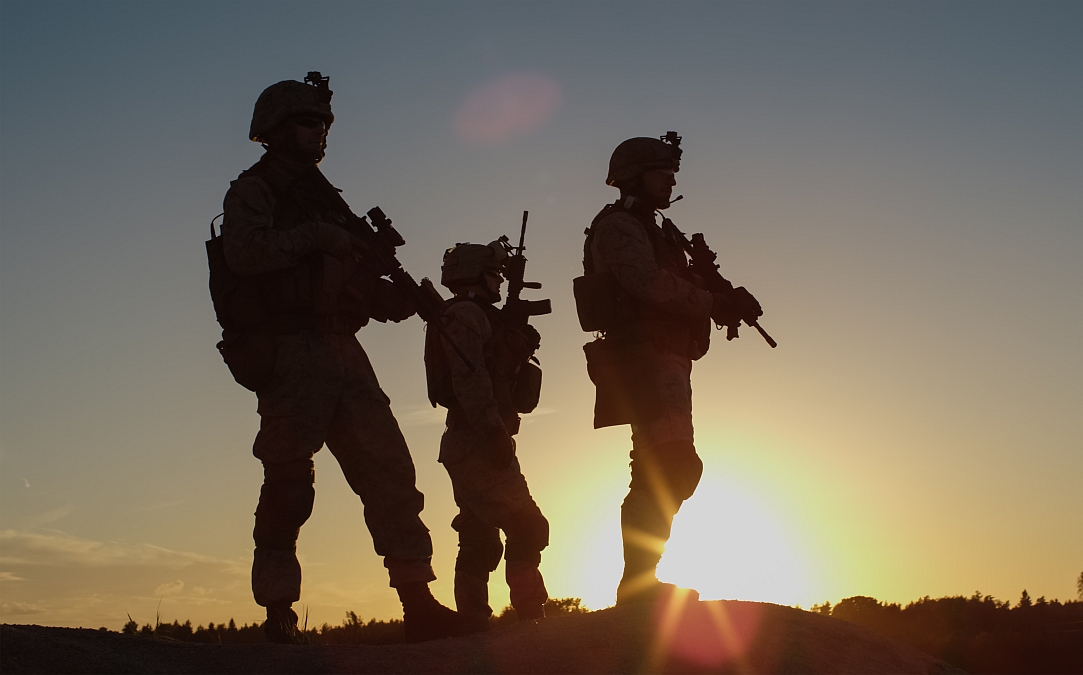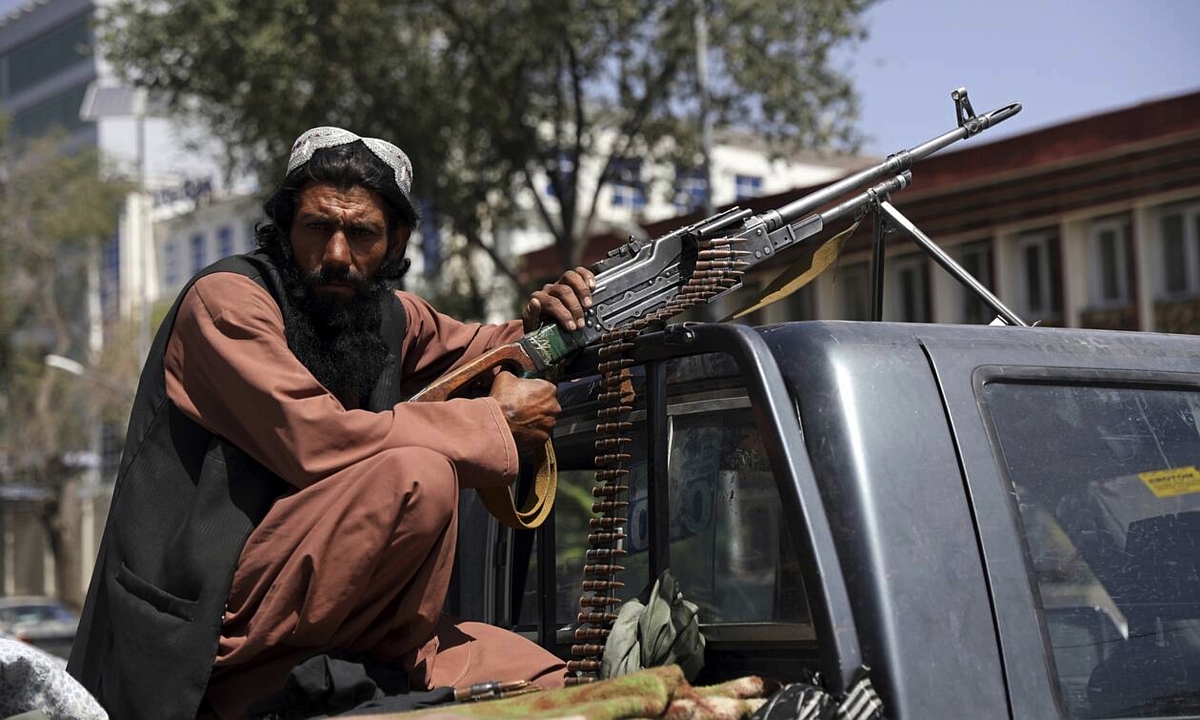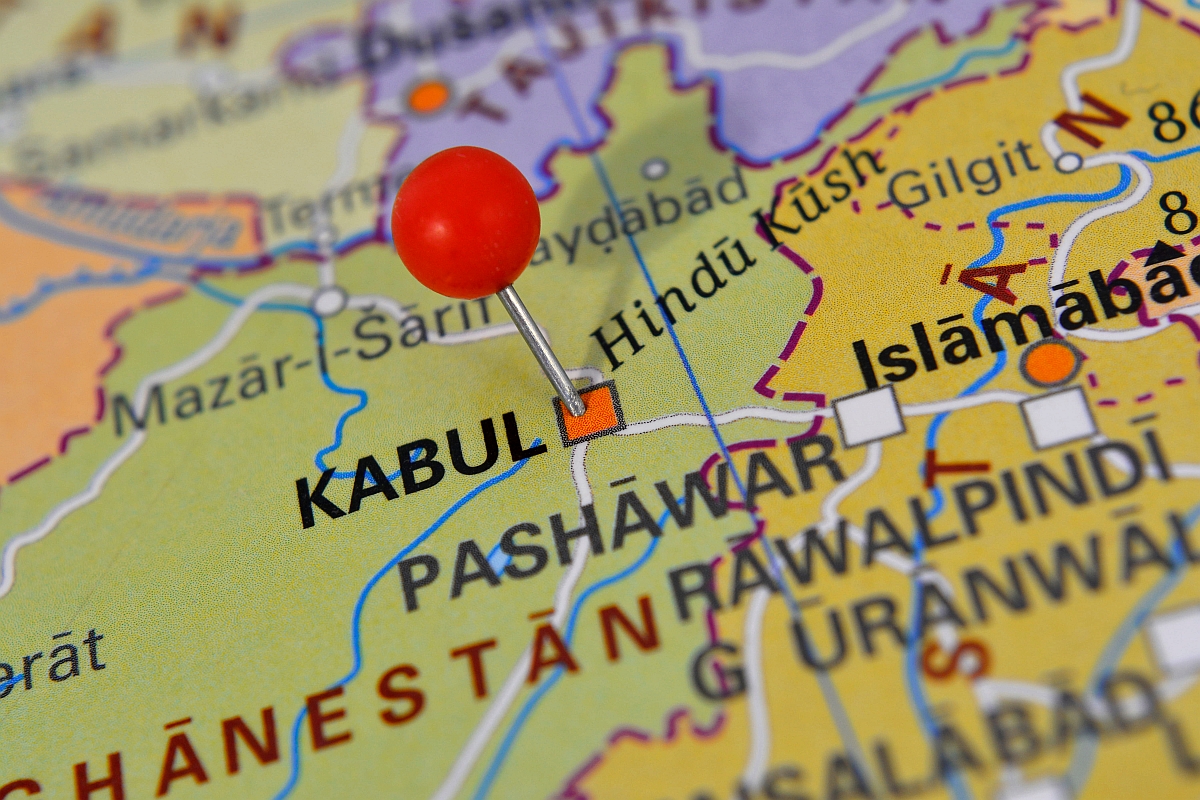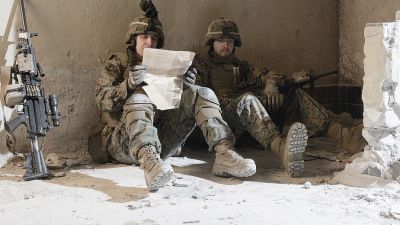The last two-and-a-half weeks brought about a dramatic turn of events in Afghanistan with the return of the Taliban and collapse of the central government. The United States, under enormous pressure to get its citizens out, critcised by many for abandoning its role in the country, has evacuated more than 100,000 nationals from Afghanistan since. But not without tragedy: an attack by extremists last Thursday left 13 US soldiers and more than 100 Afghans dead.*
How did the US get into such a position after almost 20 years’ involvement? How did things so quickly fall apart?
I discussed the situation with Jiří Pondělíček of Charles University’s Department of North American Studies at the Faculty of Social Sciences.
In the months or weeks leading up to the US withdrawal, a lot of the information and analysis seemed to suggest the Taliban would not be able to take over Afghanistan and certainly nothing like with the speed that we saw.
I think the situation that we saw was a surprise to all of those outside of the intelligence community and even for a majority within US intelligence. I read pieces as late as May of this year that said that it was impossible for the Taliban to take over the whole country having only 75,000 soldiers, and that it was impossible for them to hold towns and cities. The reports presumed that they would be strong in the countryside but that there would have to be some kind of a negotiated settlement between the Taliban and the central government. So what we saw caught many people off guard.
Based on a report in the New York Times, it seems clear now that starting late April/early May the secret services, whether the CIA or US Army Intelligence Service, or others, began suggesting this was a possibility. That they would be less capable of holding ground than previously thought and that things might end in a rout. According to the NYT, this information came to light in April and early May, by which point the withdrawal itself was already pretty much set in stone.
It can’t have been an easy position for US President Joe Biden: given his experience as a former vice president and former head of the Senate foreign intelligence committee, I think many would not have expected as seasoned a politician to be caught off guard.
The problem is that he told the American people that it would not be a rout at a time when he was informed that it was – not a certainty – but a distinct possibility. He projected undue optimism at the [wrong] moment. I think there was a failure in intelligence on Afghanistan in the months leading up to the withdrawal but I think that Mr Biden has also tried to calm people down even at a time when it was becoming clear things would end in disaster.
How critical, in your view, was the preceding year of talks? Because it was the Trump administration that led negotiations with the Taliban and many analysts are suggesting that these narrowed the outcome or at the very least US military options. Because they drew down the number of US troops from some 15,000 to 2,500, making it even harder to hold ground.
That is correct and is something that Biden outlined in his speech [Editor’s note: Biden initially addressed the public on August 16, 2021 after the first images that the withdrawal was marred by chaos at Kabul airport]. He said there were basically two possibilities. He could have followed the schedule, the negotiated deadline for withdrawal, or he could have escalated the conflict by sending additional troops in. But that would break not only the deal with the Taliban but would also go against his promise to the American people. He reminded viewers in his address that this was something that a majority of them did not want. So it’s not like there weren’t other options, but one of them was politically unpalatable.
There have been a number of editorials suggesting that this decision is either an extension of Trump’s America First doctrine, or evidence of America’s “receding” role on the world stage? Do you see evidence of either?
To be honest, I do not see much validity in either argument. When it comes to America First, Mr Biden’s administration has followed it in some respects (if, for example, you consider trade deals). Many people expected Biden’s administration to re-enter the Trans-Pacific Partnership or to declare the intention to do so, or reinvigorate negotiations with the EU and that didn’t happen. So I think that when it comes to international trade Mr Biden’s policies are not distinct from Mr Trump’s as some had hoped.
At the same time, the US withdrawal from Afghanistan is something that had been proposed many times over the years, even before Mr Trump’s time in office starting in 2016. So departure from Afghanistan is and was not part of America First but acknowledgement that it was not a critical piece on the geopolitical chessboard, so to speak. America had been looking for a way to extricate itself from Afghanistan for a long time.
As for the receding role, obviously there is a view that says that the US is headed in this direction. It is obviously a huge blow to the prestige of the US and NATO. At the same time, again, Afghanistan was not a crucial piece and I think that for many years the US have acknowledged that it was a waste of resources. They basically withdrew because they didn’t want to spend any more money on it. This would not be the case, for example, if we were discussing Taiwan or the Baltic states, the outcome would obviously have been very different.
There was a loss of an enormous amount of treasure (2 trillion USD) as well as lives…
Yes… and for very little.
That’s the big conundrum it seems: Biden went to great length to describe the initial reasons why Afghanistan was invaded which was to destroy al-Qaeda and to catch or kill Bin Laden in response to 9/11. But even though he said the intention had never been to nation-build, that was the outcome wasn’t it? Endless effort, skills, and money poured into stabilising the country and trying to make Afghanistan self-sufficient in terms of security. And that is not something that was achieved as we now see: it felt apart like a house of cards.
It was not the goal at the very beginning but we saw early on that the Americans realised early on that they would have to provide reasonable stability and security to the Afghan people. I think that even though it was not an acknowledged goal at the beginning, if you look at the purpose of Operation Resolute Support it does not refer directly to nation-building but providing security and stability were key goals of that mission. It is a bit hypocritical to now say that it was never the intent of the Americans to do that. They didn’t at the beginning but the past 10 years they tried to.
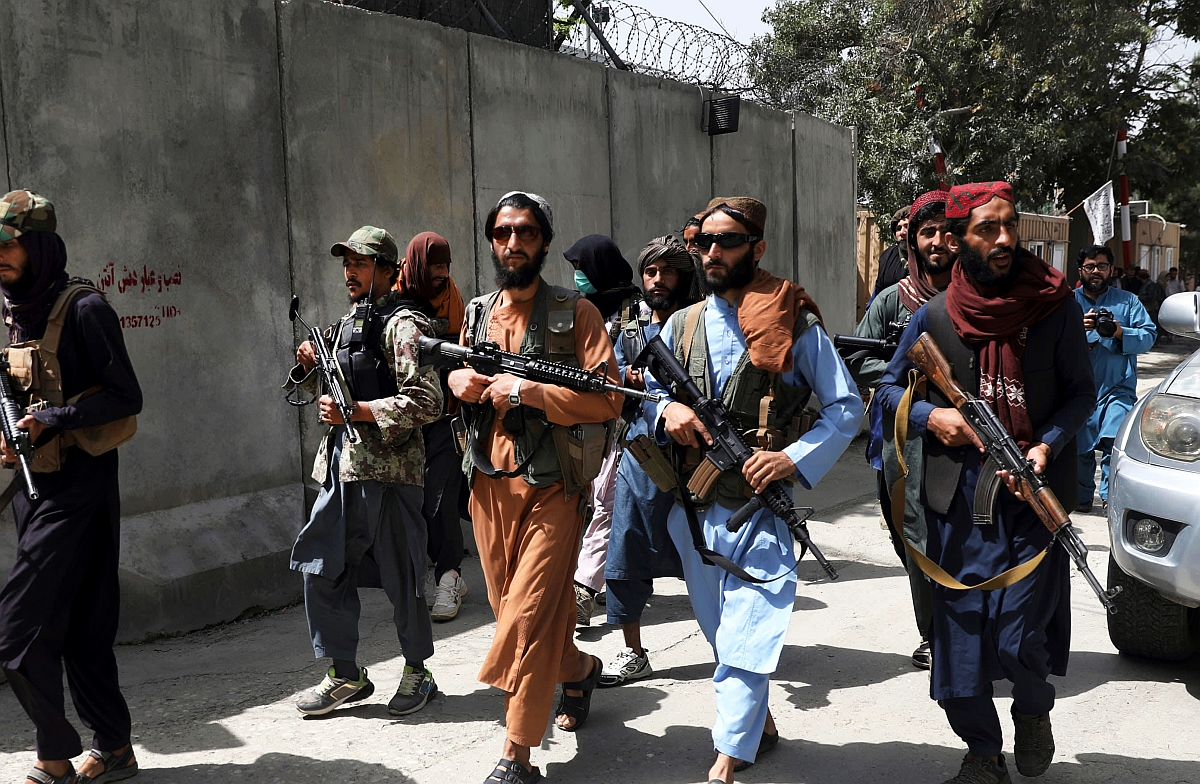
The Taliban return to power in Afghanistan for the first time since 2001. The takeover came faster than almost anyone expected.
Because of that you have a generation of Afghans who grew up in conditions vastly different from Taliban rule from 1996 – 2001 and it seems the collateral damage will be terrible. For those who are trying desperately to get out to those who fear they are or will be hunted by the Taliban for cooperating with the Americans, as well as all those staying behind who have no choice.
I am not an expert on Afghanistan so I cannot speak to tribal or other divisions there but what it clear is that some parts of Afghan society were more welcoming of the opportunities that the fall of the Taliban brought in 2001. And many of those are seen now by the Taliban as traitors. That includes people who studied at the American University of Afghanistan in Kabul. The question is whether the Taliban will be able to supress this generation of Afghans, at least in the big cities where there was reasonable security and people could enjoy a different life than their parents had had under the Taliban.
At the same time, I don’t think that over the years of US involvement, that much changed for people in the countryside in terms of personal liberties or economic opportunities. I am not an expert on Afghanistan but it seems those areas are still governed more by tribal societal structures. The question is whether they did enjoy a better life in [more remote areas] or whether we are talking about big cities.

US President Joe Biden speaks to Americans on August 16, 2021, borrowing Harry Truman's famous expression: “The buck stops with me.”
You mentioned earlier that support for ending the war – or the US involvement in Afghanistan – was high in the US but of course no one wanted the US to leave amid such harrowing images of defeat and the terrible toll on locals. Many people are disgusted by what they saw – is there any chance for any course correction on the part of the US to not only get its own people out but also Afghans who helped them?
The pressure on Biden to get people, including Afghans, out but I don’t think in terms of troops that course correction is an option. Obviously nobody wanted to see such harrowing developments and I would say it is very similar to the situation in 1973 and the negotiated settlement to end the Vietnam war. Then, everybody knew that the South Vietnamese government was unable to hold on in the long run.
[The US Secretary of State] Henry Kissinger was very straight-forward about it when talking with Nixon asking only for a decent interval before the complete takeover by the North Vietnamese. I think that leaders Trump or Biden hoped for something like this as well. That this few months to two-years that preceded the withdrawal that would leave enough time for the US to leave without it being a military failure. But the rapidity with which the central government of Afghanistan and the seeming completeness of the Taliban victory make anything else impossible right now.
The images have been harrowing but I think because the support for ending the war was so high, I think the images will not change that. When the situation calms down, or the US focuses on domestic policy such as the massive infrastructure bill, most Americans will I think be happy that the engagement was ended.
From a domestic standpoint, do you not think the Biden administration will pay a high political price? The midterms are next year and polls are suggesting support for the president has fallen and the Republicans of course are critical, although that isn’t surprising.
It’s a political game and I don’t think, hypothetically, that the Trump administration would have handled the situation differently. Whether the withdrawal itself would have been orderly and not resulted in chaos is hard to argue one way or another because the other side has not said how they would have done it. But I think the general direction of the policy would have happened anyway and nobody would have waited for a political settlement between the Taliban and the central government. The withdrawal would have happened no matter who was president.
It is legitimate, obviously, to criticise the current administration for the chaos we have seen, that is only one part of the issue. The other is whether any other administration would have handled it differently.
One thing that is well-documented, is that there were so many better opportunities that came and went over the years that could have provided a better outcome and the Taliban were not at the same strength they are now.
There were at least three good chances to reach some kind of a settlement: in 2001, 2003, and 2011 when the Obama escalation drew to an end. At all of these moments, according to sources, deals could have been struck. In 2001, it might have been the most favourable when the Taliban offered to surrender, asking for Mullah Omar’s personal security to be guaranteed and would likely have transformed into a political party according to their promise. This seems like the best offer that the US ever received from the Taliban; but it is obviously impossible to say today whether they would have complied and stuck with the terms of the deal. They might have tried to bide their time.
In 2003, the conditions then conditions were not as good but there was a chance of another settlement and in 2011 the conditions were worse still but probably still preferable to what is going on right now. The problem with the settlement that was reached with the Trump administration last February is not a peace deal but in my opinion a negotiated defeat. Because if you look at the deal and at what was reached, the Taliban got almost everything and the US almost nothing.
The only thing that the US could say they had received at the time was a promise on the part of the Taliban that they would negotiate with the central government. But that is really very vague. Still, based on information that I have, the Taliban is negotiating with former president Karzai and there are some negotiations that are – or were – underway to find a political solution to the conflict.
One takeaway, even if as you said your focus is on the US and not Afghanistan, the Taliban didn’t melt away even after 20 years… they remained there and in hindsight it seems were never likely to just disappear.
I agree with that. In 2001 and 2003 the deals were rejected by the US because the US really did believe the Taliban had or could be defeated completely, which simply did not happen. Whether it was undue optimism or hubris...
Regarding the withdrawal, we have seen a wide range of response including dismay and horror, from veterans who are disgusted to some who understand or are not surprised by the decision, to Afghans themselves, many of whom are desperate to get out or feel betrayed or the American public who paid the bill. Obviously the American mainland wasn’t hit by a large-scale terrorist attack again. But will anything else positive come out of this? What were these 20 years for?
That is a legitimate question. If you lost a loved one or a friend, a fellow service member, if you were injured serving in Afghanistan, it’s quite obvious that this withdrawal will feel like a betrayal. The argument is either they should have followed through… or never have engaged on such a scale in the first place. I agree especially if you are someone who is affected directly, veterans or Afghans who are there, especially those who worked with the Americans and tried to build a different country or society than they had under the Taliban, they are feeling betrayed.
To answer the question “What was it for?” or “Will it bring anything besides the defeat of al Qaeda, which was a very narrow goal in the first place, I think only time will show. I read an article which suggested that women and simply young people who had received an education would simply not allow the Taliban to reinstate its rule prior to 2001. So while we can expect that women’s rights and freedom to deteriorate, the question is whether things will sink as low as they were before 2001.
If the answer is “No”, then there is a chance that things will improve gradually and maybe the generation after – in 20, 30, or 40 years, will give birth to a new country. But the changes will be more gradual and maybe it was impossible to ever expect that such fundamental change could come sooner than within three or four generations’ time.
Some analysis suggests that “even” the Taliban will have to approach governing somewhat differently than they did in the past if they really are to hold power. An economic crisis could loom very soon as US funding is withdrawn, the economy could collapse and someone will bear the brunt. What about Afghanistan serving as a base for future terrorist threats?
I think that it is not an immediate threat. The US Army has the capability to hit at terrorist targets and that is something we have seen in Syria and Iraq. This could change in five or 10 years and will be something that the US will have to watch. I don’t know that they would want to take on the US again. I don’t think that they are willing to risk it in the immediate future.
With this chaotic departure from Afghanistan, does that mean that the US is now chastened? Or is it simply a question of being present in more important areas in terms of maintaining security and maintaining vital interests?
I think that it is a little bit of both. The chastising did occur when it came to non-vital interests. In the 1990s, many politicians argued that everything could be an American vital interest or argued that America had not only the right but also a duty to respond to problems all around the world, whether we are talking about protecting human rights in Serbia and Kosovo, and in this respect both Iraq and Afghanistan were, I think, a valuable lesson. Because if you don’t intend to put your full force and resources behind a move, maybe you shouldn’t do it in the first place.
Regarding Kabul, when I read the Global Times [Editor’s note: a tabloid under the auspices of communist China’s People’s Daily] they wrote something along the lines that Taiwan should be worried now that the commitment of the US military and the US in general is so “unreliable” now. And that is nonsense. Taiwan has a completely different priority and this is what I think you were referring to: the US is trying to focus on different challenges and China is first and foremost among them. I don’t think that China has that much to celebrate about the US withdrawal. Obviously, there is a loss of prestige, but it also unties some of the US resources that was spending in Afghanistan and can be used much more vital interests, not only Taiwan, but in the Pacific area generally.
| Assistant Professor Jiří Pondělíček |
| Jiří Pondělíček is an Assistant Professor of History at the Department of North American Studies at the Faculty of Social Sciences at Charles University. He is currently working on his Ph. D. Pondělíček is well-known in the Czech media, speaking to broadcasters such as Czech Radio or Czech TV. |
* Editor's note: This interview was conducted prior to (and therefore does not reflect on) the deadly terrorist attack at Kabul airport on Thursday, August 26, that left almost 200 people dead (including 13 US servicemen). More than 100,000 Americans have been evacuated from Aghanistan to date.
Additional reading



